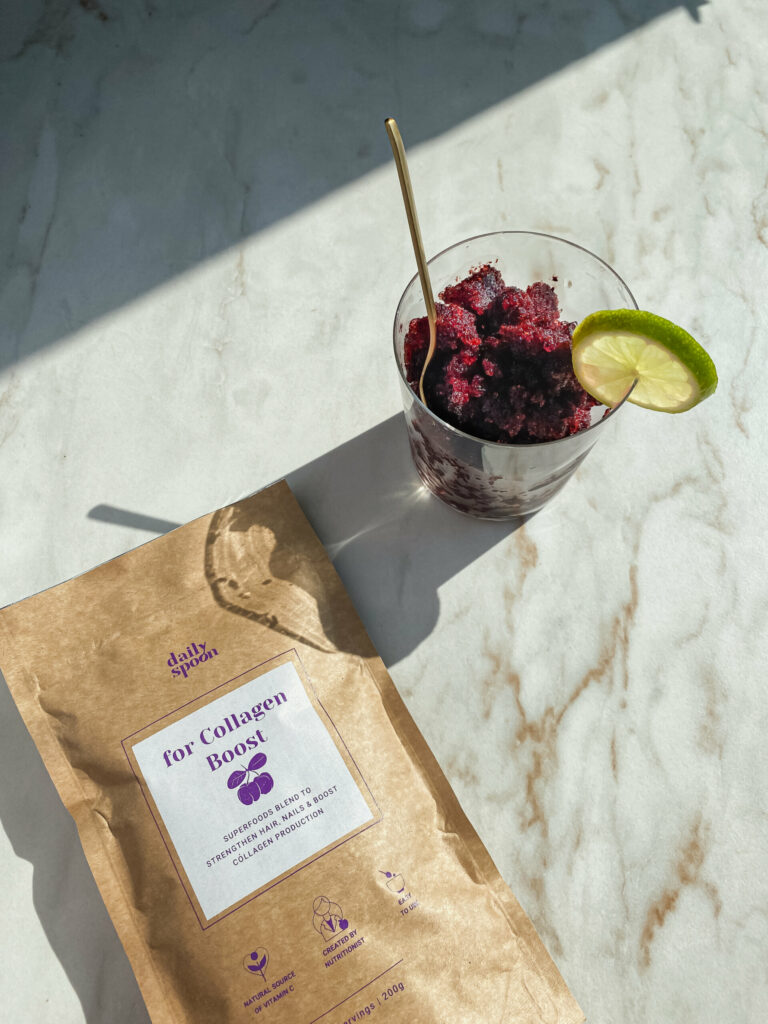We often find ourselves in a bad mood or feeling depressed. However, such states can be temporary and are often caused by lifestyle and environmental factors, such as a “blue” sky throughout the day. If this is how you feel and you want to improve your mood, the Daily Spoon provides some top tips and even examples of foods that can help improve your mental well-being.
Lifestyle aspects
- Exercise regularly – exercise is one of the best ways to improve your mood and mental health. When you exercise, your body releases endorphins, which are natural mood-boosting chemicals. Endorphins also reduce stress and anxiety levels, making it easier to manage everyday stressors. In addition, regular exercise can help improve the quality of your sleep, which can also contribute to a better mood.
- Get enough sleep – Sleep is essential for mental and physical well-being. Insufficient sleep can lead to feelings of fatigue and stress. Try to get at least 7-8 hours of sleep each night and keep to a regular sleep schedule. If you find it difficult to fall asleep, try to establish a relaxing sleep routine, such as reading a book or taking a warm bath.
- Eat a balanced diet – the food you eat can also have a big impact on your mood and mental health. To improve your mood, eat a balanced diet that includes plenty of fresh fruit, vegetables, whole grains and lean protein. It is also important to limit your intake of processed foods and sugar, as these can contribute to feelings of increased anxiety.
- Get enough omega-3 fatty acids – Omega-3 fatty acids are essential fatty acids that are important for brain health and function. Foods rich in omega-3s include oily fish such as salmon, sardines and herring, as well as flaxseeds, sage seeds and walnuts. These foods can help improve mood, reduce anxiety and improve cognitive function.
- Add probiotics to your diet. Probiotics are good bacteria found in certain foods and food supplements. These bacteria can help improve gut health and reduce feelings of anxiety and depression. Foods rich in probiotics include yoghurt, kefir, sauerkraut and kimchi. You can also find probiotic supplements at your local health food store.
- Limit caffeine and alcohol consumption – caffeine and alcohol can negatively affect your mood and mental well-being. Caffeine can increase feelings of anxiety and stress, and alcohol can contribute to feelings of fatigue, so coffee should not be abused. Try to limit your caffeine and alcohol intake and replace them with water, herbal teas or fresh fruit juices.
- Practice mindfulness. Mindfulness is the practice of focusing on the present moment and paying attention to your thoughts, feelings and sensations. This practice can help reduce stress and anxiety and improve mood and well-being. To practice mindfulness, try meditation, deep breathing exercises, or simply take a few moments each day to focus on your breath and be in the present moment.
Let’s move on to food
- Salmon is one of the most nutritious foods and is particularly rich in omega-3 fatty acids. These essential fatty acids are vital for brain health and play a crucial role in the production of neurotransmitters that regulate mood, reduce anxiety and depression, and improve cognitive function. Studies have shown that omega-3 fatty acids can help improve mood, reduce anxiety and improve cognitive performance in both healthy people and those with mental illness.
- Yoghurt is an excellent source of probiotics, the beneficial bacteria that live in our gut and play an important role in maintaining good health. Probiotics have been shown to help improve gut health, which in turn can help reduce anxiety. In addition, studies have shown that probiotics can help regulate the release of neurotransmitters, which can help improve mood and cognitive function. By including yoghurt in your diet, you can help support your mental and emotional health.
- Berries are rich in antioxidants and vitamins, including vitamin C, which can help improve mental health and reduce feelings of stress and anxiety. Antioxidants help protect the body from damage caused by free radicals, which can contribute to inflammation and other health problems. Berries are also a good source of fibre, which can help improve digestion and reduce feelings of anxiety.
- Oats and brown rice are a good source of complex carbohydrates that can provide long-lasting energy and help improve mood. Complex carbohydrates are digested slowly, which helps to regulate blood sugar levels and avoid energy spikes. This can help reduce feelings of fatigue, improve mood and promote better overall health. In addition, whole grains are a good source of fibre, which can help improve digestion and reduce feelings of anxiety.
- Nuts, such as almonds and walnuts, are a good source of healthy fats and proteins that are essential for brain health. Studies have shown that eating healthy fats can help improve mood and reduce feelings of anxiety and depression. In addition, nuts are a good source of fibre, which can help improve digestion and reduce feelings of anxiety. Including nuts in your diet can help support your mental and emotional health.
- Dark chocolate is rich in antioxidants and has a positive effect on mood and stress levels. Dark chocolate contains compounds such as flavonoids and polyphenols, which have been shown to help reduce stress levels and improve mood. Dark chocolate also contains caffeine and theobromine, which can help improve alertness and concentration. When choosing dark chocolate, look for one that contains at least 70% cocoa to get the maximum benefit.
- Leafy greens such as spinach and kale are a good source of vitamins and minerals that can help improve mental health and reduce stress and anxiety. These greens are rich in vitamins, including B vitamins, which are essential for brain health and can help improve mood. Leafy greens are also a good source of magnesium, which can help reduce feelings of anxiety and depression. By including leafy greens in your diet, you can help maintain your mental and emotional health.
- Avocados are known for their high levels of healthy monounsaturated fats and vitamin B6, which play an important role in maintaining good brain health. These healthy fats can help improve overall mood by supporting brain structure and function. In addition, vitamin B6 is involved in the production of neurotransmitters such as serotonin and dopamine, which regulate mood, appetite and sleep. This means that eating avocados can help to reduce feelings of stress and anxiety and improve overall mood.
- Fermented foods such as sauerkraut, kimchi and kefir are excellent sources of probiotics – beneficial bacteria that help maintain a healthy gut microbiome. Several studies have shown that a healthy gut microbiome is important for good mental health because it helps regulate the gut-brain axis. This means that eating fermented foods can help reduce feelings of anxiety and improve overall mental wellbeing.
- Green tea is rich in compounds such as polyphenols, which have a positive effect on mental health. Studies have shown that these compounds can help reduce stress levels and improve overall mood by affecting the release of stress hormones and neurotransmitters in the brain. Green tea also contains theanine, an amino acid that has been shown to improve focus, concentration and overall cognitive function.
- Matcha is a type of finely powdered green tea. It is rich in antioxidants, including polyphenols and catechins, which have been shown to have health benefits, including reducing stress levels and improving mood. It also contains caffeine, which can help improve alertness and concentration, and theanine, an amino acid that has been shown to promote relaxation and reduce anxiety. Drinking this tea can provide a sustained release of energy, which can help improve mood. The friendly price of the product certainly suggests that it is worth at least a try. Matcha also has a naturally sweet and earthy flavour, making it a delicious addition to smoothies, lattes and baked goods.
In summary, the food you eat has a big impact on your mood and mental health. Including more of these mood-boosting foods in your diet can help reduce feelings of sadness and improve your overall mood and well-being. It is important to remember that although these foods can be beneficial, they should not be relied upon as the only source of mood improvement. A balanced diet, regular exercise, adequate sleep and a good social life are all essential for good mental health. It is also important to seek help from a mental health professional if you are experiencing symptoms of anxiety, depression or other mental health problems. Taking care of your physical and emotional health can help you lead a happier and more fulfilling life.
















